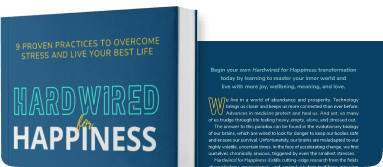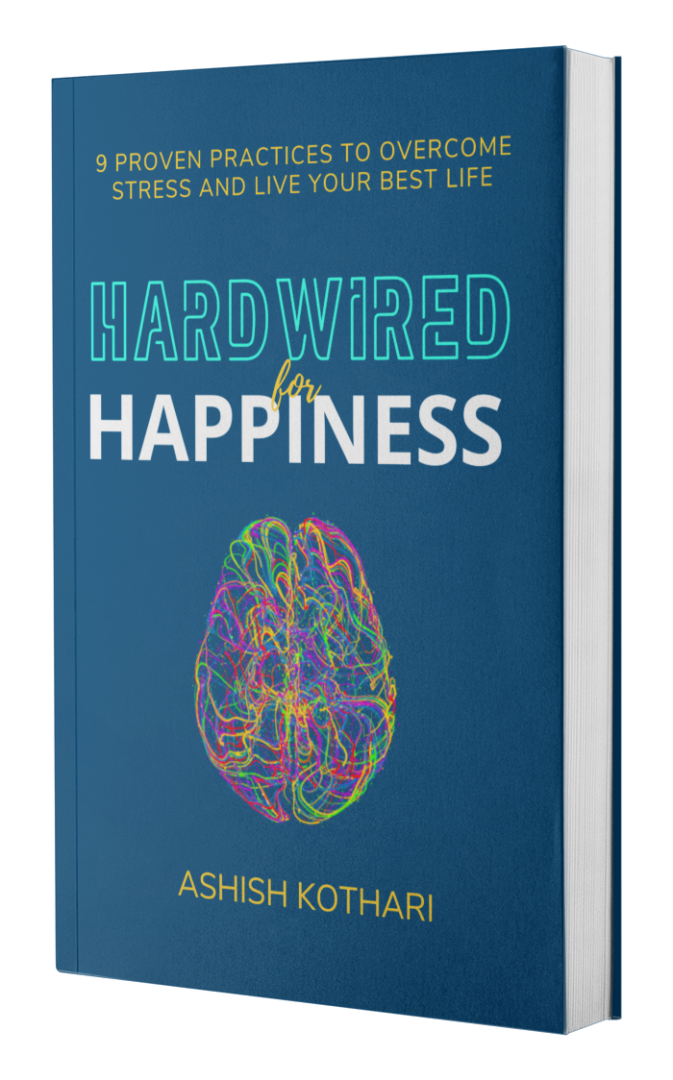Reversing The Negative Effects of Social Media On Mental Health with Mark Weinstein

Social media has transformed the way we connect, but it’s also taken a toll on our mental health. From addiction to manipulation and polarization, the negative effects of social media are undeniable. But there’s a way for us not to fall into its traps.
In this article, Mark Weinstein, world-renowned Tech Entrepreneur, Privacy Expert, and Author of “Restoring Your Sanity Online,” joins us in tackling the challenges posed by social media and, more importantly, how to overcome them and reclaim your balance.
“If you want to flourish, thrive, and be happier, healthier, and more authentic, you can’t do it without changing your relationship with technology.”
– Ashish Kothari
The mental health crisis driven by social media
While social media platforms have helped us connect with the world, they have also evolved into powerful tools for data collection and manipulation. Algorithms track every click, purchase, and even conversation to create detailed profiles of users. These algorithms can anticipate your behavior and take note of your preferences, which could possibly influence your next moves online or even compromise your privacy.

Social media is designed to be addictive, fostering constant dopamine hits that make users crave more interaction with these platforms. However, over-reliance on virtual connections can lead to a decline in real-world relationships. The consequences are evident: a rise in anxiety, depression, and polarized thinking.
Social media’s negative impact on the youth
Children and teenagers are particularly vulnerable to digital addiction, one of the negative effects of social media on their mental health. It’s known to contribute to cases of bullying and a disturbing increase in teen suicides.

Moreover, a shocking research reveals how early screen exposure affects children’s brain development. Kids are born with twice as many neurons as adults, and the brain undergoes a pruning process to determine what to keep and what to discard based on activation. Early screen time trains their brains for high-speed content processing, making it harder for them to focus in slower-paced settings like classrooms.
Social media’s negative impact on adults
For adults, the addiction to likes, shares, and curated content attacks self-esteem and compromises authenticity, resulting in a constant need for validation. Some of us have become dopamine addicts, hooked on the constant stimulation that social media provides, keeping us “always on” and disconnected from the real world.

How to restore your sanity online
Reversing the negative effects of social media on mental health requires both individual action and collective effort. Systemic changes are needed as much as personal boundaries.
- Awareness. Awareness is the first step toward reclaiming control. To reverse the negative effects of social media on your mental health, start by recognizing how social media platforms manipulate your behavior.
- Take a break from posting. Take intentional breaks from social media and be mindful about sharing content because online posts are permanent. Try a week without posting, and use the time to reconnect with the people and activities that matter most.
- Replace screen time with real-world activity. For parents, it’s critical to delay smartphone access and avoid using screens as a babysitter. Sweden has banned screens for children under two, and we can follow similar guidelines in our homes. Keep phones out of bedrooms and create phone-free zones, especially during family meal times. Replace screen time with books, toys, and real-world interactions. When dining out, resist the urge to hand over a phone to keep kids quiet—engage with them instead.
- Reconnect with the present. Practice mindfulness by savoring everyday moments, like sunsets or nature. Initiate face-to-face conversations to foster connection and take intentional breaks from technology to reconnect with yourself and your surroundings.
Our work lives may demand us to stay online, but let’s not forget to disconnect before it turns into an unhappiness habit that controls us.
“It’s time for us to release our artificial importance and get back to what’s important and valuable.”
– Mark Weinstein
Ethical digital practices to protect your privacy
Social media platforms, especially in today’s AI-driven era, process collected data and manipulate user experiences. These algorithms personalize content feeds to keep users engaged and prioritize ads and content based on user profiles, often without their knowledge. To protect your privacy, consider these ethical practices when you engage in social media:
- Turn off photo metadata on your content. Photo metadata includes timestamps and location data, which can be disabled at your phone settings for privacy and safety.
- Explore privacy-focused alternatives. Use social media platforms like Mastodon, MeWe, or BlueSky that prioritize user privacy. Switch to secure search engines like DuckDuckGo to reduce tracking.
- Advocate for data portability. Support systems like PODS (Personal Online Data Stores)that allow users to move their data seamlessly between platforms.
- Promote user ID verification. Push for regulations requiring age and identity verification to combat bots, trolls, and predatory behavior.
- Support responsible social media use. Advocate for restrictions on boosted content and targeted advertising, particularly for children.
Stay informed and educate others. Stay up-to-date on privacy policies and digital safety practices. Share knowledge about ethical alternatives and safer online behaviors with your community.
Conclusion
Social media has blurred the lines between connection and control, leaving many of us drained, distracted, and manipulated. Algorithms feed us what we want to see, creating echo chambers and fueling polarization. Meanwhile, our kids are growing up in a world where attention spans are shrinking, and mental health crises are on the rise.
Now more than ever, we need to unplug from the cycle, protect our family’s mental health, and find balance, but it’s easier said than done. Technology has become a necessity, and social media is deeply intertwined with our work and lives. Yet, as Mark Weinstein wisely reminds us: restoring our sanity online is the first step to reclaiming our mental well-being offline.
In this episode of the Happiness Squad Podcast, Ashish Kothari and Mark Weinstein, Privacy Expert & Author of Restoring Our Sanity Online, discuss the impact of social media and digital habits on mental health and well-being, alongside actionable strategies for regaining balance in our lives.
Learn more about Mark at his LinkedIn.
Listen to the podcast with Ashish and Mark below.
Access and subscribe to all of the episodes of the Flourishing Edge Podcast here.
Visit the REWIRE Program powered up by the HAPPINESS SQUAD Community and experience your shift within your 30-day risk-free trial today. Cultivate your Self-Awareness, Gratitude, Purpose, Community, and personal growth more through the 9 Hardwired for Happiness practices. Integrate simple and proven micro-practices grounded in the science of happiness and neuroscience of habit formation in 5 minutes a day.
Make Flourishing Your Competitive Edge.


